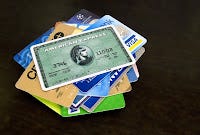Your political opinions will be sold to credit card companies & private corporations like Walmart & Target.

The record of what people told Democratic volunteers may go up for sale — and not just to political groups. Democrats are looking into whether credit card companies, retailers like Target or other commercial interests may want to buy the information.
State Democratic party leaders formed the National Voter File Co-op in 2011 to sell their voter data to approved groups like the NAACP. The goal was to recoup some of the money local Democratic parties spent collecting and updating their local voter lists, which include voters of all parties.
Much of the data the co-op sells comes from the government and is already part of the public record — information such as voters' names, addresses and party affiliation.
But local Democratic parties also have information about voters' views and preferences collected over many campaign cycles. (We wrote about Minnesota's data-collecting "Grandma Brigade" last month.) Some state Democratic parties have used this raw data to create sophisticated estimates of how likely any voter is to vote for a Democrat, support Barack Obama or have certain opinions, say, on abortion or gun control.
As the co-op moves into its second year of selling data in an already crowded marketplace, it's looking for new potential clients — and companies who may use the data for commercial purposes, as opposed to political ones, are on the list.
"That's one of our growth areas," said Drew Brighton of TargetSmart Communications, which helps administer and market the Co-op's data. "Over the next six months, we are going to go ahead and make the rounds with some corporate prospects."
Brighton said retailers, for example, might be interested in figuring out if their customers are primarily Democrats or Republicans. "People want to know who shops in their stores," he said.
Democrats involved with the co-op do not know what companies might be most interested in buying their voter data.
"What the co-op is doing is saying, 'Look, there's a wealth of information here, that could potentially benefit your corporation or your business interests,'" said Ken Martin, a member of the co-op's board, and the chairman of Minnesota's Democratic-Farmer-Labor Party.
"Everything is on the table, nothing's off the table. It's up to us to figure out what [data] there's a market for, and whether there's a comfort level among state parties for selling that information," he said.
Each state Democratic Party will have the final say over whether to sell their voter information for commercial purposes. If state party leaders aren't comfortable with selling proprietary data to a certain client, they can opt out.
Individual states have different laws about how their public voting records can be used. Many states mandate that public voter rolls can only be used for "political purposes," and some states explicitly ban using voting records for "commercial purposes." The co-op and its clients must abide by these rules.
But state political data laws do not apply to the information about voters that the party itself has gathered.
"Generally, information freely provided to the party by the voter, or data about who participated in a primary [that the party collects] is not subject to any prohibition on it being sold," said Karl Sandstrom, a former vice-chairman of the Federal Elections Commission and an attorney for the co-op.
This means Democrats are free to sell the opinions voters give to campaign canvassers to credit card companies or marketing firms.
Whether they will choose to do this isn't certain. Martin, the Minnesota Democratic chairman, said that party leaders will have to weigh the risks of any potential deal.
"Obviously, we know we could make money off our file, but it always comes back to the question of, at what cost?" Martin said.
He said he would evaluate commercial deals on a case-by-case basis.
"I'm not opposed to selling the data if it's a corporation who shares our values and is going to do some good work with that data."
Wal-Mart, for instance, would not make the cut, he said.
Whether corporations are interested in buying the co-op's data remains to be seen. Wal-Mart did not respond to a request for comment about whether it would be interested in buying information about its customers' political beliefs.
http://www.propublica.org/article/will-democrats-sell-your-political-opinions-to-credit-card-companies


